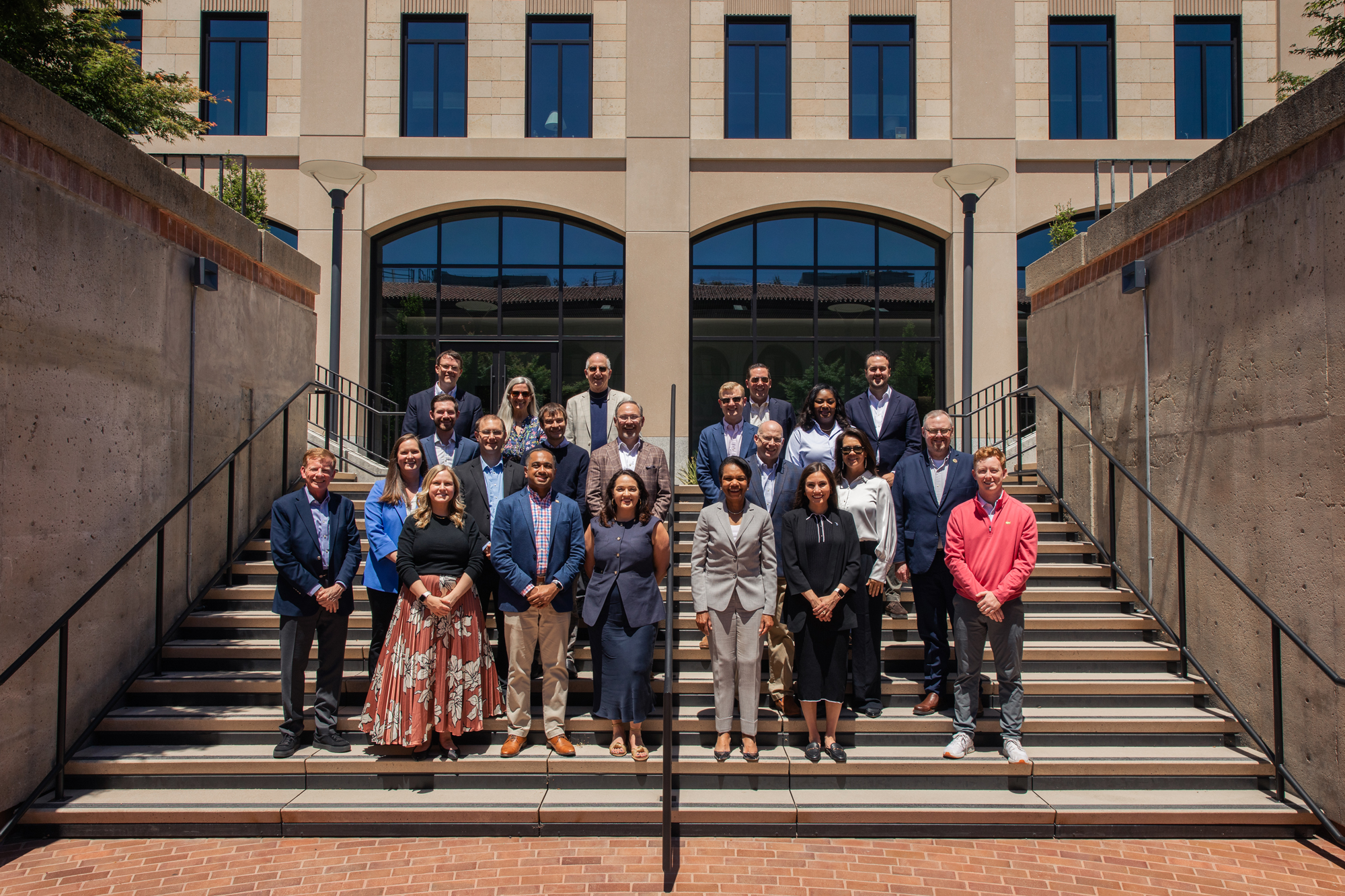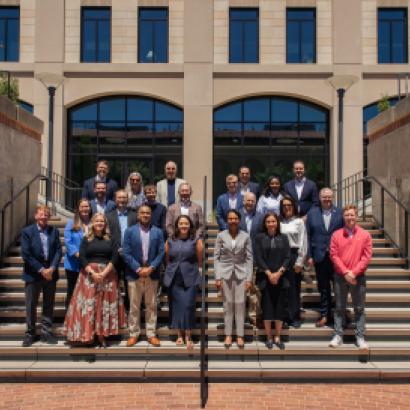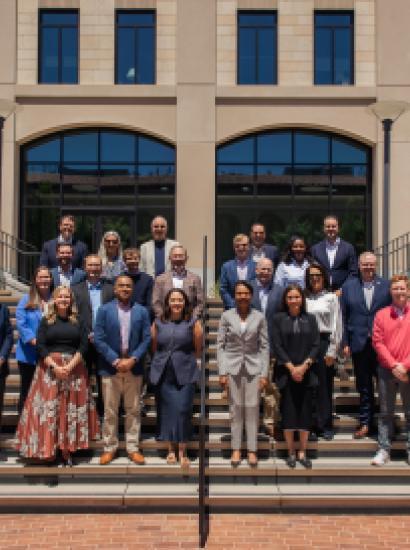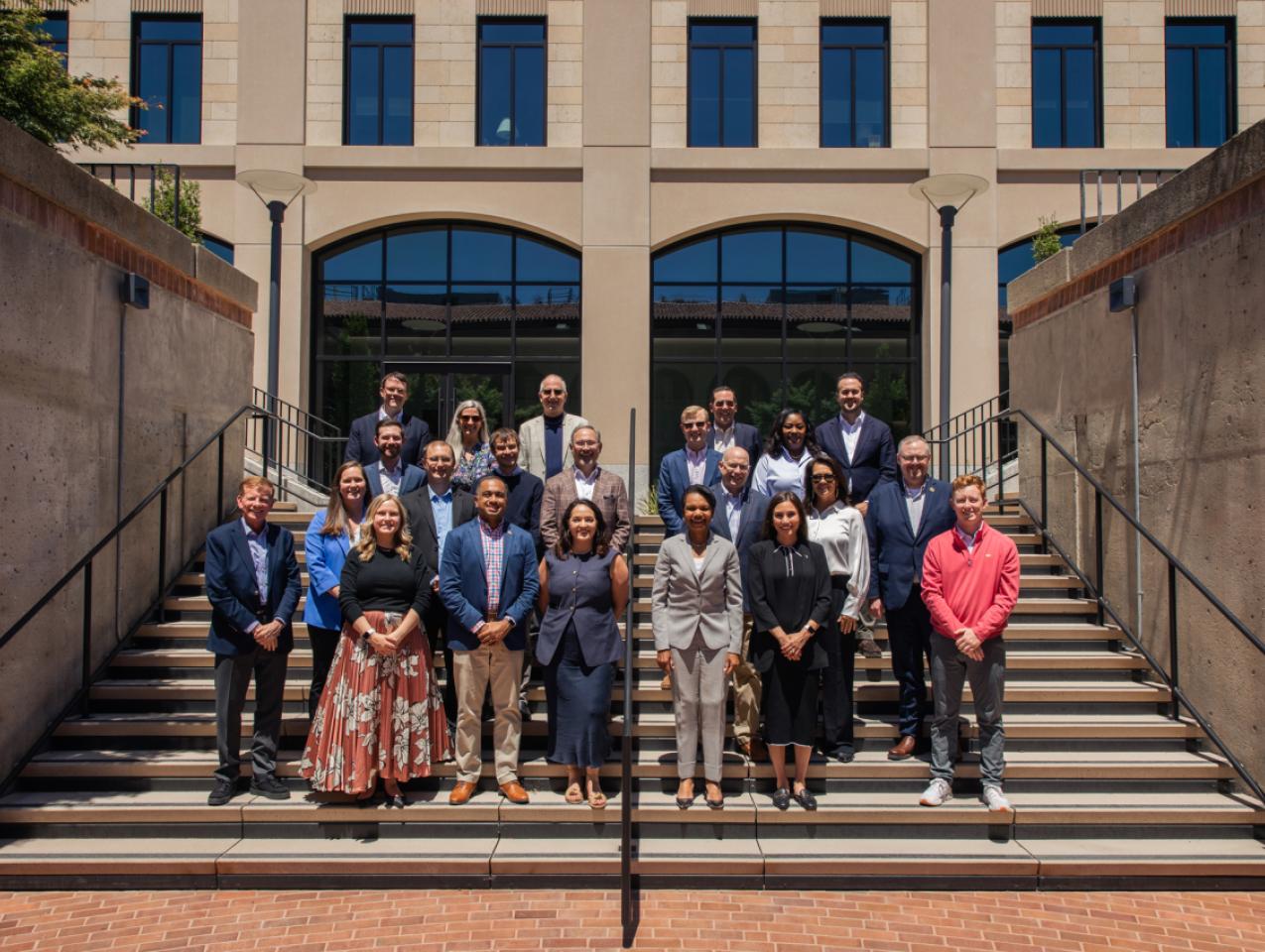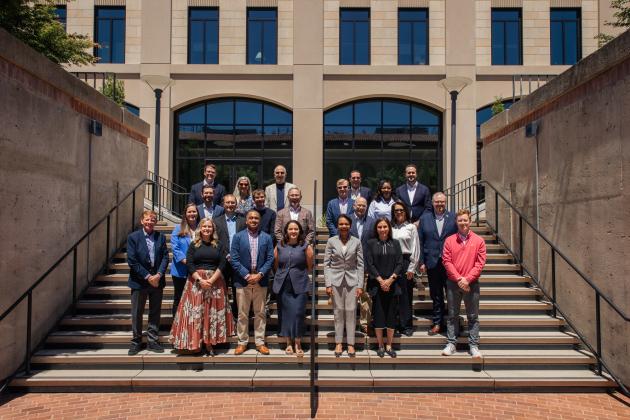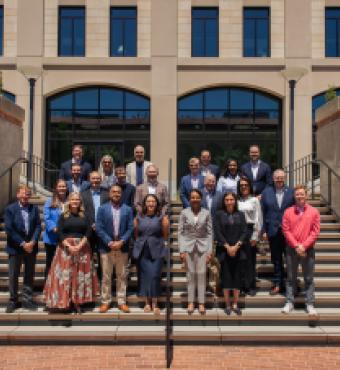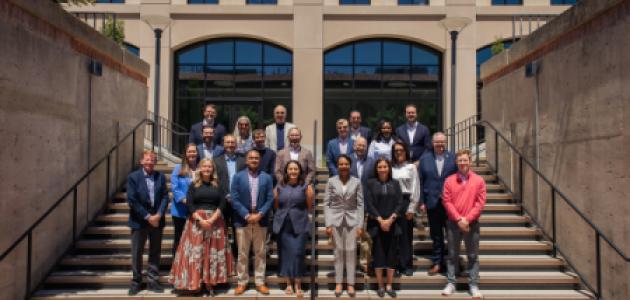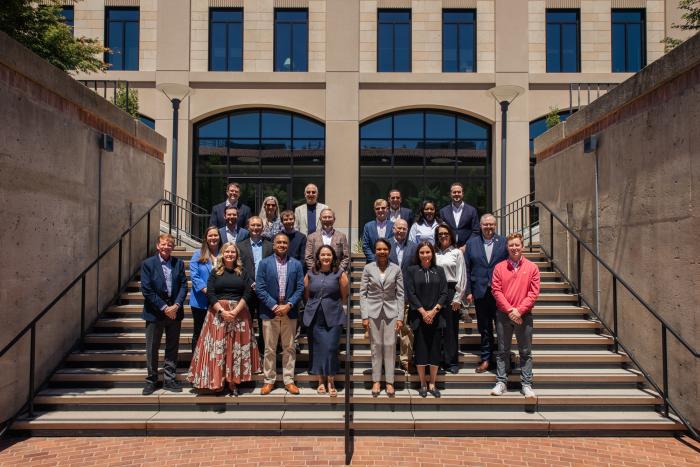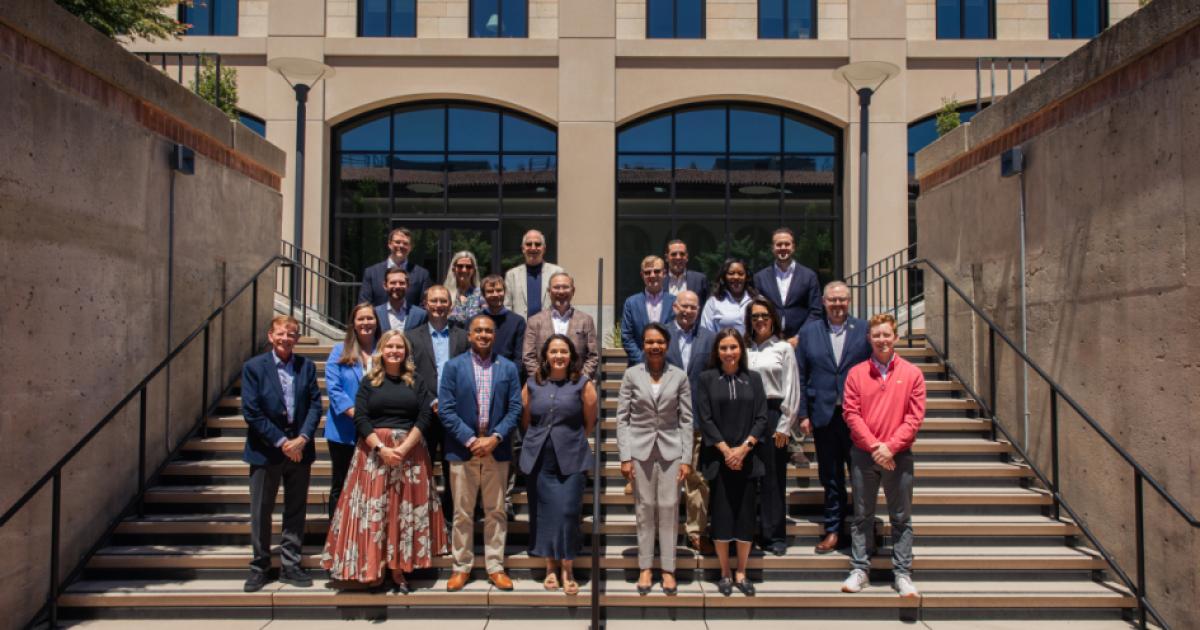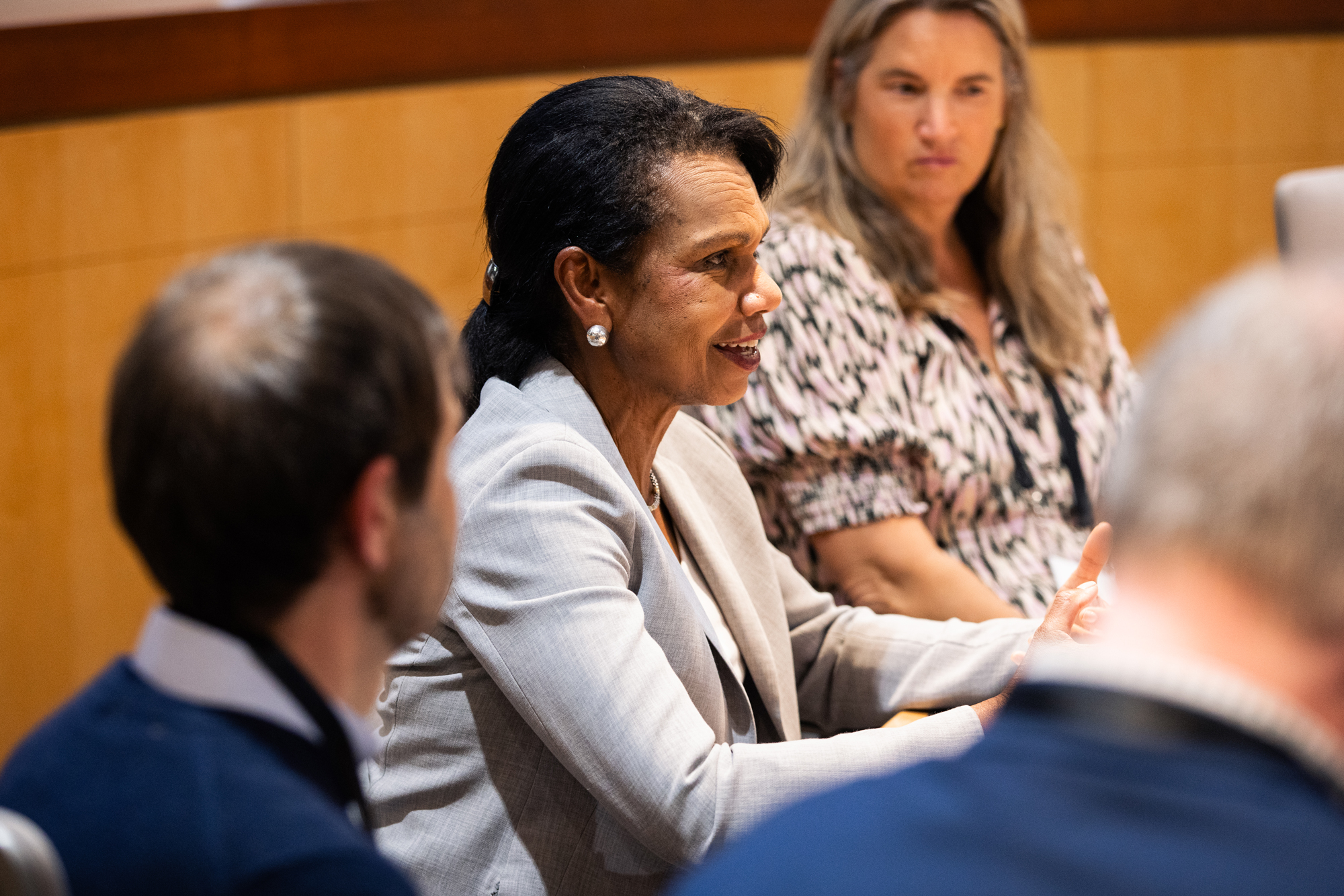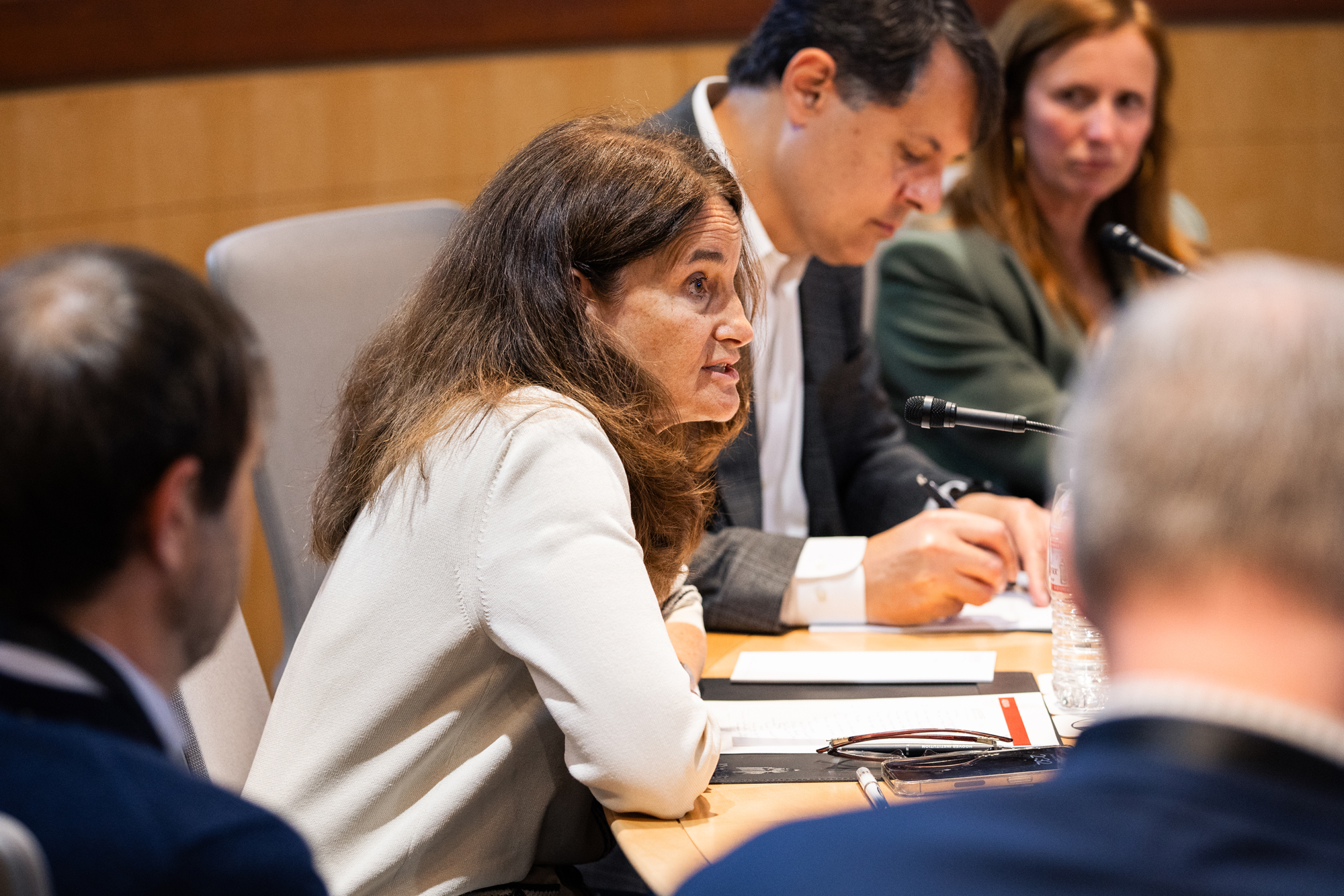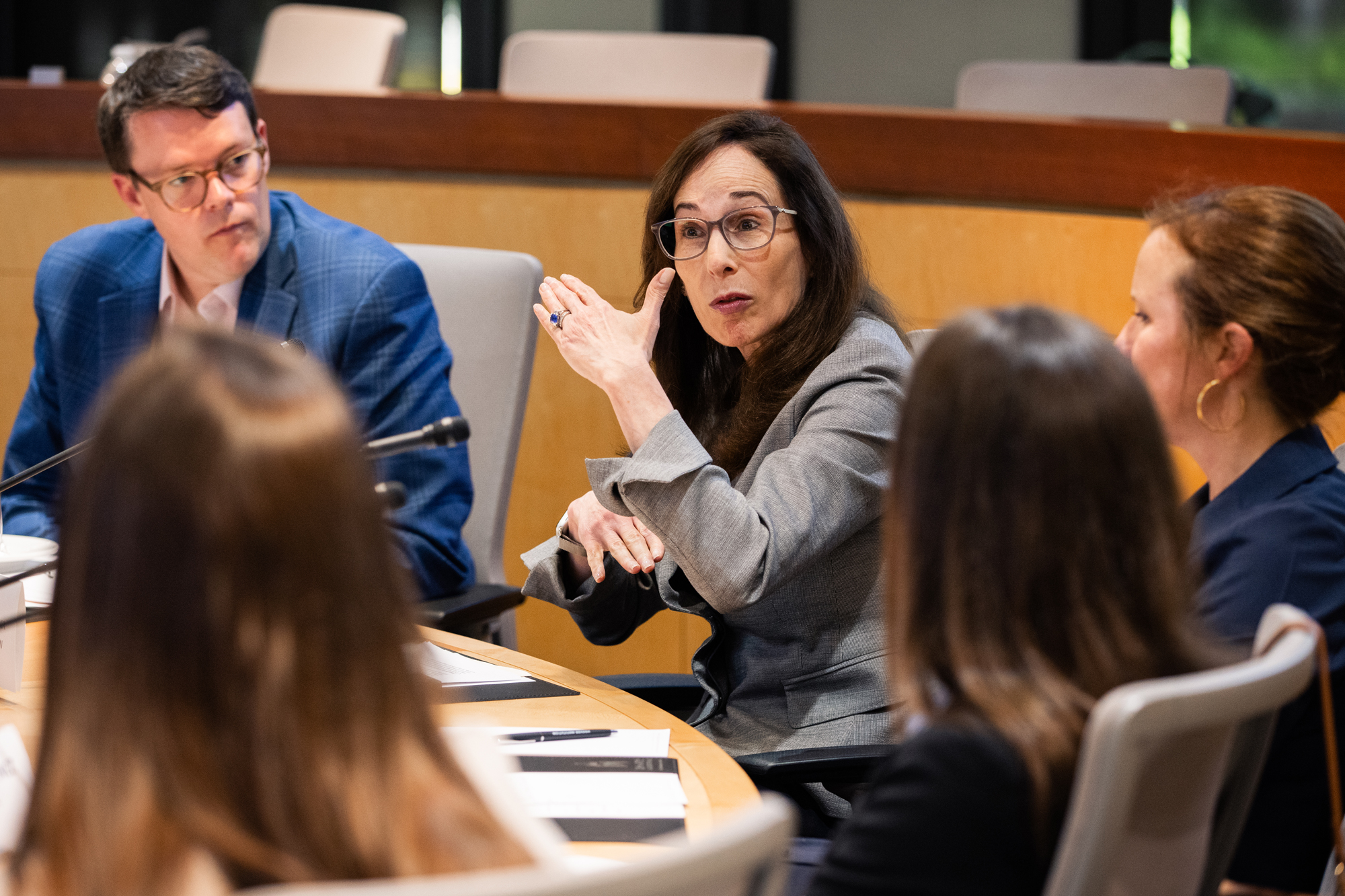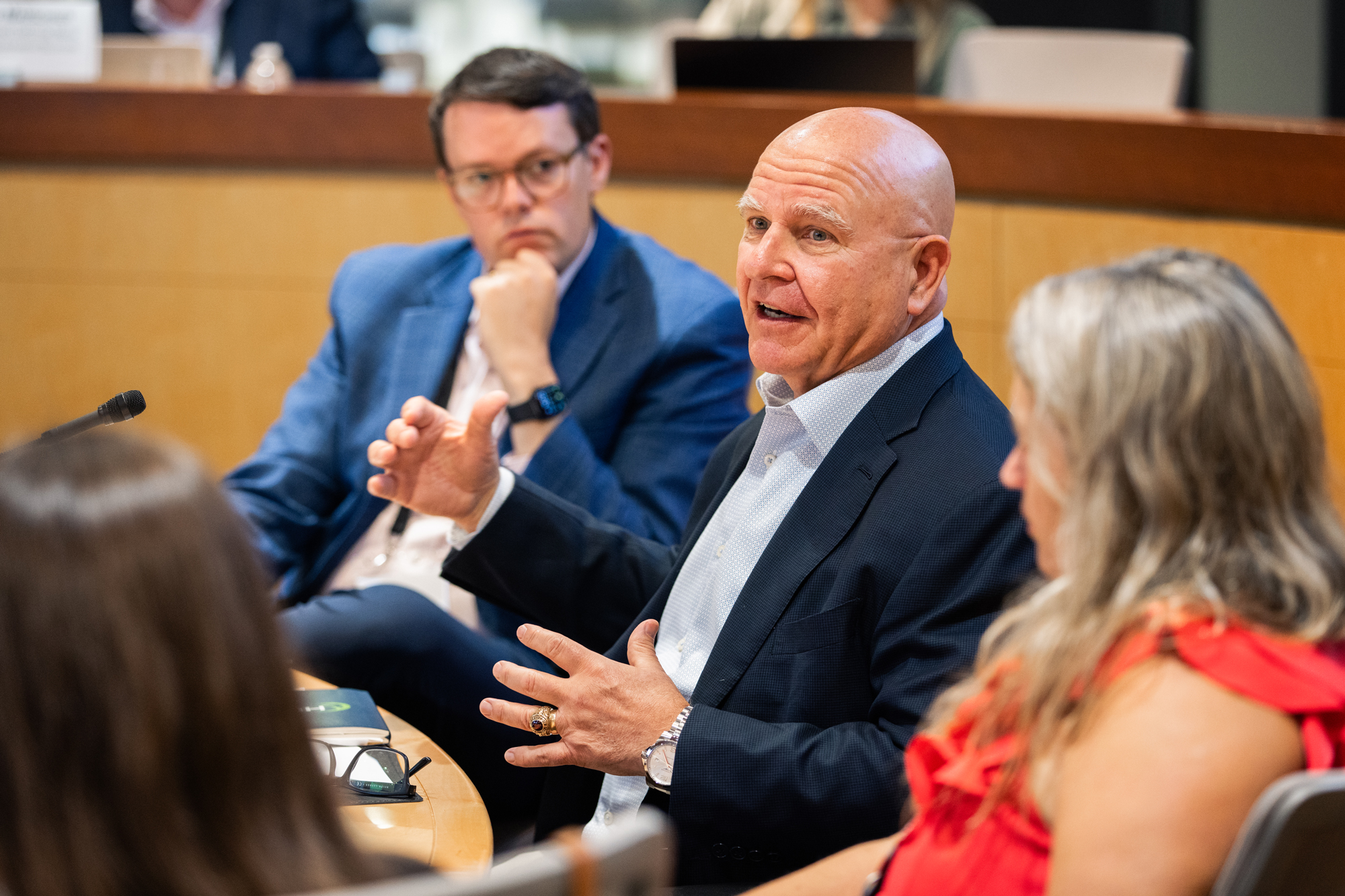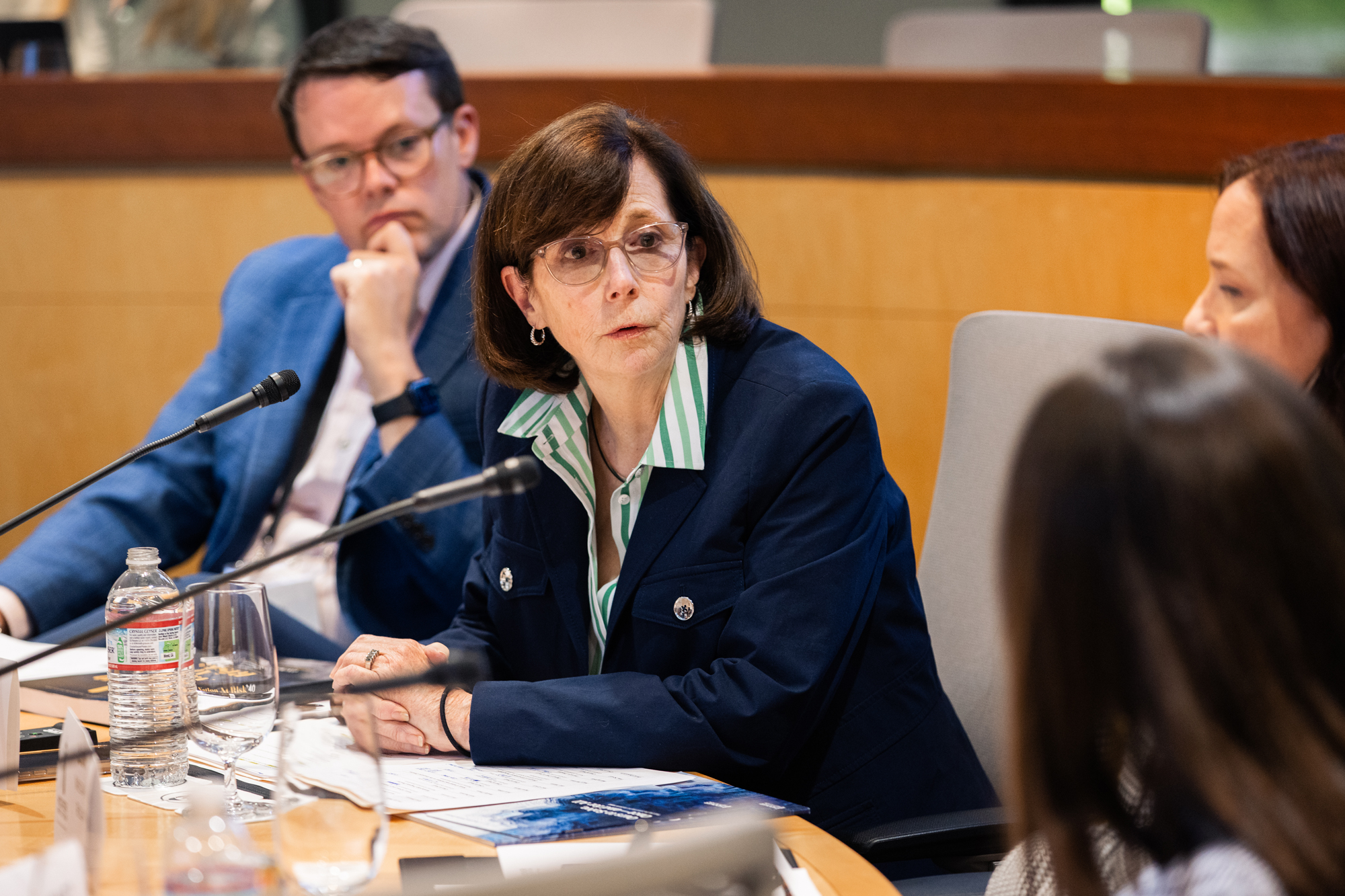Hoover Institution (Stanford, CA)—More than a dozen senior officials from state governors’ offices across America gathered to hear from an impressive selection of Hoover experts on topics ranging from relations with China to K-12 education, election misinformation, and the future of space exploration.
Representatives gathered at Hoover on May 19–20, 2025, hailing from 15 states including Colorado, Delaware, Hawaii, South Dakota, and Utah, as well as the territory of American Samoa, to hear from leading experts about a range of issues that impact policy at the state level.
The gathering is part of a series of events put on by Hoover’s State and Local Leadership Forum, organized in part to conduct outreach with legislators at the federal and state level, as well as municipal and education sector policymakers and bureaucrats.
Welcoming state officials was Hoover Institution Director Condoleezza Rice, who spoke about Hoover’s priorities including revitalizing American institutions, helping policymakers navigate the challenges of advanced economies, and preparing America for challenges posed by adversaries abroad.
America’s relationship with China is among its most challenging and contentious. In this light, the codirectors of the US, China, and the World program, Hargrove Senior Fellow Elizabeth Economy and Distinguished Research Fellow Glenn Tiffert, spoke to attendees about China’s foreign policy goals and Hoover’s ongoing efforts to safeguard US science and technology from foreign misappropriation and enhance resilience among elected officials and business leaders at the state and local levels to foreign interference.
Moving to a matter principally handled by states, Senior Fellow Justin Grimmer stopped by to discuss the US election system. He cited his recent research, which points out that the supposed “suppression” effect of new voter registration rules is decidedly low. He also demonstrated research that finds most Americans say voting is as easy as cooking a box of grocery store macaroni and cheese. He also delved into the new cottage industry of election fraud conspiracy theories, which he finds to be completely wrong and unfounded.
Exploring how technological advances continue to challenge policymakers, Senior Fellow Amy Zegart spoke about the continuing work of the Stanford Emerging Technology Review (SETR), which charts the development of ten emerging technologies, drawing on the expertise of Stanford faculty. She stressed the continued importance of universities as providers of basic research and said that federal funding of basic research must continue.
Building on the theme of universities and their support of basic research, the group looked to the heavens, visiting the laboratory of Science Fellow and SETR faculty council member Simone D’Amico, who works on autonomous spacecraft and distributed space systems.
He spoke about the modular, private sector nature of the future of space exploration, and what that may mean in context of the responsible use of space.
Looking abroad, Senior Fellow H.R. McMaster spoke to attendees about his time spent as national security advisor in the first Trump administration. He urged state officials to foster a culture of vigilance in their states about cybersecurity and safeguarding against foreign influence operations. He also spoke to the need for a larger US Army, for which larger and more robust state national guards would play a significant role.
Of particular concern to states is the K-12 education arena. Distinguished Research Fellow Margaret (Macke) Raymond spoke to state officials about the need to improve student achievement. She circulated the inaugural report of Hoover’s Education Futures Council, which stresses the need for local flexibility at the principal or even teacher level, to tailor approaches and lesson plans to the needs of local students.
Asking how states will fare in an environment of ballooning US federal debt and deficits, Senior Fellows John H. Cochrane and Valerie Ramey provided an overview of the troubling fiscal pathway the US finds itself on.
In the most feared scenario, if tariffs implemented in 2025 remain, alongside the 2017 Tax Cuts and Jobs Act provisions becoming permanent, America’s debt-to-GDP ratio could hit 200 percent by 2055.
They emphasized that the American economy could be steered out from the ominous path it finds itself on, but there appears to be no political will on either side the aisle to make sound fiscal choices.
Demonstrating the enduring value of the State and Local Leadership Forum, Research Fellow Rebecca Lester spoke about a variety of research projects underway involving several US states, including an ongoing project with Hawaii, which was cultivated after Lester connected with Hawaii officials in a previous State and Local Leadership Forum meeting.
In the partnership, Lester’s team is looking at the impact of a wide-ranging personal income tax cut rolling out in Hawaii between 2025 and 2031.







